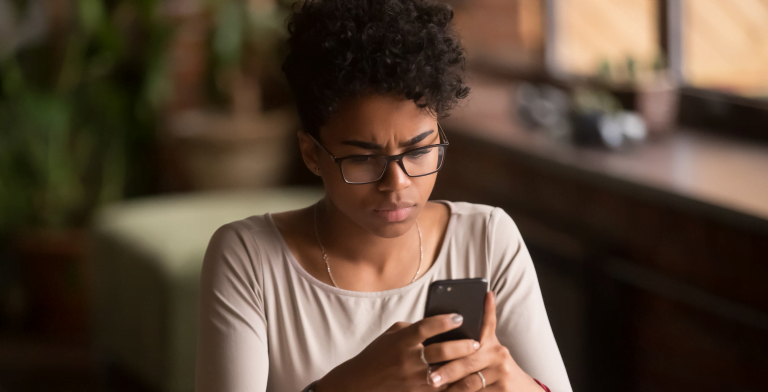If you are upset by the news, it’s important to know that you are not the only one and it’s OK to have those feelings. It’s important to remember that being sad, worried, or angry about what’s happening in the world is okay and perfectly normal. You won’t be the only one who feels that way.
When major events happen in the world, the media goes into ‘overdrive’; it is what the media thrives on. Endless speculation of ‘what ifs’ and ‘doomsday scenarios’ can fill our news & social channels. There can be an endless parade of ‘experts’ & historians drawing parallels with past events. For many people, the result will be increased anxiety and although concerns may be valid, it can be very unhelpful to our own mental health, on a day-to-day level.
If it is impacting you, don’t keep it to yourself. Share your worries.
Talk to someone
It’s completely normal to feel worried, but if you are starting to feel overwhelmed, it’s important to notice how you’re feeling and talk to someone you trust. You could reach out to a friend, someone in the family, a teacher or a helpline (see the end of the article). Simply talking about how you are feeling can have a positive impact on anxiety.
If you are living with us, you could talk to your project worker or counsellor.
Don’t overexpose yourself to the news & social media
Many of us are constantly checking the news or our social feeds for updates. This can seem like the best way to gain ‘control’ over the situation. However, the opposite is true, as it is much more likely to lead to feeling overwhelmed and anxious. Try limiting the amount of time you read or watch the news and limit updates to reputable news stories – such as the BBC.
If you are finding it difficult to stay away from the news, try to actively plan other things to do or limit the amount of time you are on your phone. Rather than message friends, why not give them a call? Actually chatting to a friend creates a much greater connection, and so can be much more comforting. Reading, watching a film or going for a walk are all good ways to avoid news binging.
Taking a break from social media, muting and unfollowing accounts that make you anxious, is another option. Remember, with social media you are in charge of what you see, so if you realise certain accounts (or friends) are fuelling your anxiety, mute them for a while.
Find things that help you feel calm
Everyone is different, so there isn’t a ‘one size’ fits all approach to finding what works for you. Some of us know what helps us stay calm, but, when we’re in an anxious state, we sometimes become our
own worst enemies and ignore it. Instead of going for a run, we reach for a chocolate bar. Or, we try to distract ourselves and turn to stimulants like cigarettes or alcohol which can leave you feeling worse. If you have struggled with this in the past, this might be a good time to try out some new ways of ‘self-soothing’ such as meditation, yoga, simple breathing techniques or keeping a diary.
It is also worth remembering that looking after yourself physically will make a difference to your anxiety levels. All the boring advice you’ve probably heard a million times is relevant: eat well, get enough sleep and stay physically active!
Ideas for reducing anxiety:
- Physical activity – go for a run (being outside/fresh air will help too) or do an online class
- Play music
- Call a friend
- Read a book (try re-reading a favourite book as it can be very calming, it’s like meeting old friends)
- Hot bath
- Meditation/breathing techniques – lots of apps available to help guide you
- Write down how you’re feeling or keep a diary
E-wellbeing modules
Our digital wellbeing service, e-wellbeing, have written some helpful modules for young people that include useful tips, advice and resources.
- Feelings Module
- Anxiety Module – includes CYP anxiety video
- Anger Module – includes CYP anger video
Helpline services
- YoungMinds Crisis Messenger
Provides free, 24/7 crisis support across the UK if you are experiencing a mental health crisis.
If you need urgent help text YM to 85258. All texts are answered by trained volunteers, with support from experienced clinical supervisors. Texts are free from EE, O2, Vodafone, 3, Virgin Mobile, BT Mobile, GiffGaff, Tesco Mobile and Telecom Plus. - Childline
Comforts, advises and protects children 24 hours a day and offers free confidential counselling. Phone 0800 1111 (24 hours). Chat 1-2-1 with a counsellor online. - The Mix
Information, support and listening for people under 25. Phone 0808 808 4994 (24 hours). Get support online. - Samaritans
24 hour confidential listening and support for anyone who needs it (adults included). Email [email protected]. Phone 116 123 (24 hours)

